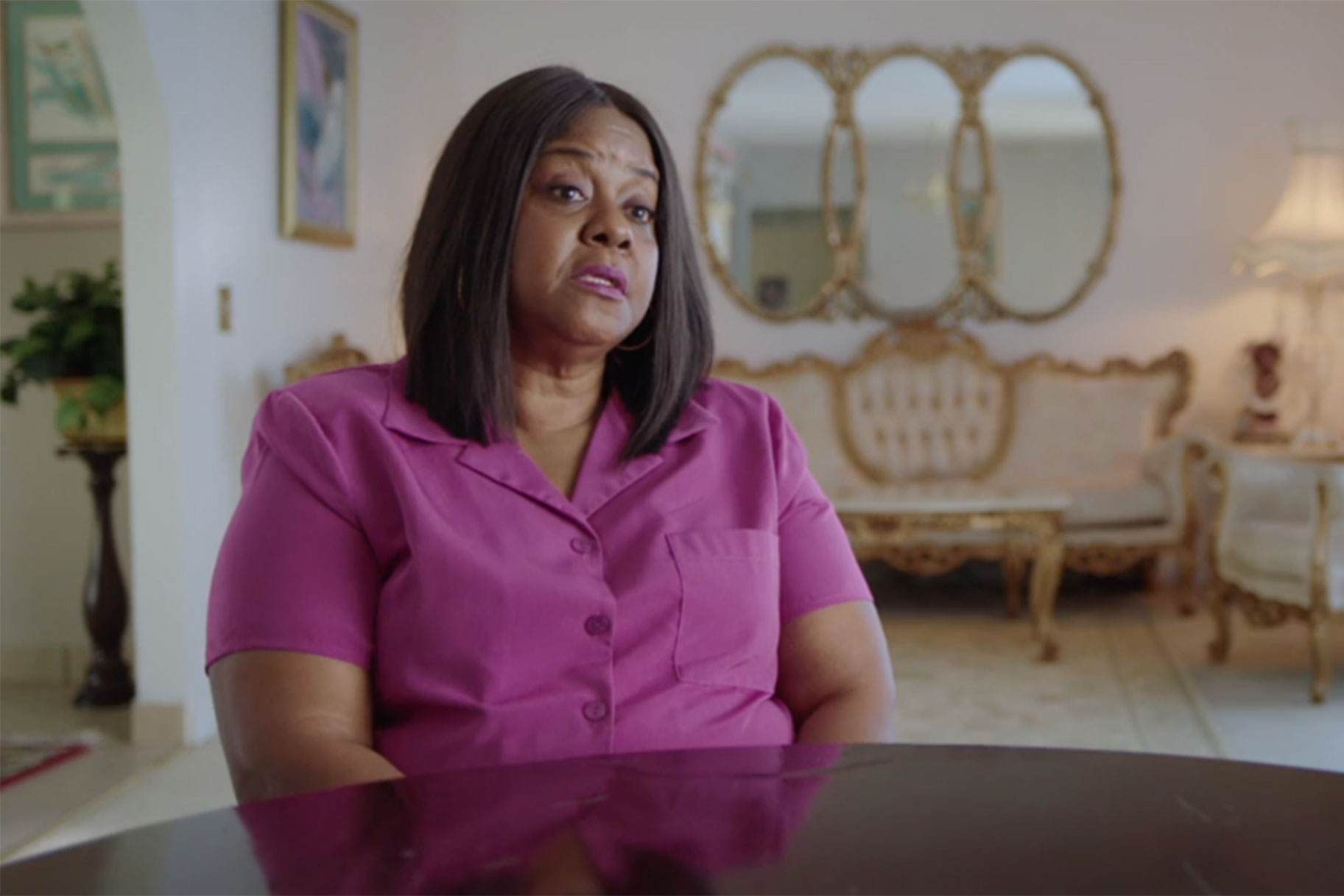Create a free profile to get unlimited access to exclusive videos, breaking news, sweepstakes, and more!
Where Is Gloria Brown, One Of The McDonald's Monopoly $1M 'Winners,' Now?
"I just wanted a better life and I just felt this was my opportunity," Gloria Brown recalled in a tearful interview for "McMillion$"

After Gennaro "Jerry" Colombo, one of several people behind the McDonald's Monopoly scam recounted in the HBO series "McMillion$", began doling out winning game pieces to people he knew, his wife Robin Colombo noticed a problem.
"My husband, he picked the winners, but he kept picking Italians on the East Coast. They were kinda being stupid about it. Somebody was bound to get suspicious, so I told my husband I’ve got a friend in Jacksonville. Bring some women into it, and women of color," Robin said in episode three of the docu-series.
Enter Gloria Brown, one of the most memorable McDonald's Monopoly $1 million "winners" from 1997. The first black American and woman of color to claim the $1 million prize, she admitted her regret at being involved in the illicit scheme.
"When I first got the offer, I thought to myself that it was a blessing that came knocking at my door," Brown said in the documentary. "I was going to church and I was trying to do the right thing. ... I just wanted a better life, and I just felt this was my opportunity."
Brown seemed like a solid choice that would deter any suspicions. A single mom living with her son in Jacksonville and making around $24,000 annually before tax, Brown could significantly benefit from winning McDonald's top prize.
Brown had been friends with Robin Colombo for several years before she and her husband Jerry became embroiled in the McDonald's Monopoly scandal with Jerome "Uncle Jerry" Jacobson. Jacobson, who worked in security for a McDonald's contractor that produced the Monopoly game pieces, stole winning pieces, which he then distributed to recruiters like Jerry Colombo to pick winners of the game. In return, Jacobson and his network would get a cut of the winnings.
Robin acted as a "recruiter" of sorts for Brown, who she introduced to Jerry Colombo in 1997.
Brown recalled Robin calling her out of the blue one day and asking her to visit her home in South Carolina in what turned out to be a pitch to invite Brown into the conspiracy. She was eventually propositioned by Jerry Colombo to be one of the hand-selected winners – but soon learned the biggest part of the process for obtaining a winning game piece involved a large down payment to the tune of tens of thousands of dollars.
Brown didn't have that kind of money on her, and ended up remortgaging her home in order to make the down payment at Jerry's urging. She gave him the first down payment in cash on the side of a highway.
"I thought I was smarter than that," Brown said in an interview on HBO's tie-in podcast for "McMillion$."
She was coached through the process of submitting the ticket she "won" – to the point that she felt "kidnapped" by the process. "There was no way out except to go through it," she said in the documentary.
Brown then came up with a cover story for the ticket given to her by Colombo, claiming she found the winning piece while cleaning out her car, according to a newspaper clipping from 1997. She presented herself as a Beaufort, South Carolina resident and covered up that she was actually from Jacksonville, Florida, due to the fact that a large number of Colombo-connected "winners" claimed multiple McDonald's prizes in the Jacksonville area, according to The New York Times.
After claiming the prize, Colombo walked Brown through filling out the prize form and made it seemed like Brown was a resident of South Carolina by making her record an answering machine message at the home of an associate there, according to The Daily Beast.
The supposed windfall proved not to be the "blessing" Brown initially hoped for. She felt squeezed and cornered by Colombo.
"I've seen the jolly part that he played," Brown told the "McMillion$" podcast of Colombo's seemingly gregarious nature. "Later in the process, I start seeing another side of him. There's two sides to Jerry Colombo, I saw both sides."
Even the apparently liberating prize itself ended up being a trap of sorts. After forking over half of the annual $50,000 payment to Colombo, Brown was stuck paying taxes on the entire sum, which the documentary estimates left her with roughly $10,000 a year for her involvement. She also faced unrelenting pressure for further payments and Colombo even demanded she visit a payday loan service to pay him back more quickly, she said on the podcast.
Brown was ultimately indicted on conspiracy and mail fraud charges for her participation in the scheme, and later pleaded guilty to conspiracy charges and was ordered to pay restitution, according to The Associated Press.
She now works two jobs in Florida to make ends meet for her family, telling the HBO podcast it has taken a long time to pay down the mortgage she took out.
"It keeps her busy, she doesn't want down time," Brown's manager Lawrence Snead told Oxygen.com of her current work life.
"She's the type to take care of her family," Snead added. "When it comes to what she was offered, it's like what Robin said, 'If you were offered a pot of gold, would you take it?'"
After coming to dread media attention during the heyday of the Monopoly scam, Brown is now choosing to put her story out there, writing a memoir with Balencia Brown-Anthony titled "I Thought I Would Be Living My Best Life." The book is slated to come out after the final episode of "McMillion$" airs on March 9.

























